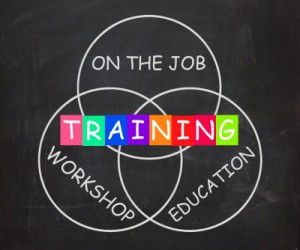Business continues to struggle to find adequate skills in South Africa, despite government’s extensive reforms to the national skills development and training system that have taken place over the last decade.
This is as a result of government’s focus on building supply-side interventions such as sector skills councils, qualifying frameworks, grading of qualifications, and funding based on these, rather than acting to create the skills the country demands.
In the latest edition of the Institute for Justice and Reconciliation’s (IJR) Transformation Audit, titled “Breaking the mould: Prospects for radical socio-economic transformation", education and labour specialist Andre Kraak argues that the government should balance its typically “Anglo-Saxon” approach with deeper engagement with business, to better balance its skills development and training approach.
Since policymakers have largely bypassed the private sector, which should be instrumental in creating jobs for graduates from Further Education and Training colleges (FET) and should therefore participate in shaping the current regulatory environment, employers have not sufficiently bought into the reforms, says Kraak.
The South African economy needs intermediary skills and, according to Kraak, FET colleges are best suited to support this demand. However, he says, government may be laboring under a misinterpretation of what business requires, believing that training for the “knowledge economy” should supersede the creation of intermediary skills because it will have a negative impact on low-paid, semi- and unskilled work.
In addition, by centralising skills development policy within the Department of Higher Education, government may find itself locked into a narrow approach that limits the development of alternative strategies to boost skills development. Although, this could also mean that any approach could be adjusted quicker as there would be fewer government department stakeholders to contend with, says Kraak.
In his paper, Kraak points to various skills development initiatives that have worked around the world, where programmes are identified and run to meet the needs of local and regional businesses, and that feature partnerships between policymakers, businesses, training agencies, non-governmental organisations, and learning institutions.
While conceding that that skills development and training reforms have taken place at a rapid pace over a relatively short time, Kraak believes that time is of the essence. Already the Global Competitiveness Index (which measures the ability of institutions to create a globally competitive nation), demonstrates that the national skills development crisis is causing the country to slip down the rankings, and inward investment prospects are being harmed by the perceived shortage of required skills.
Policymakers would do well to ask, says Kraak, whether they are paying sufficient attention to the demand-side dynamics of the labour market. Urgent reflection is also needed on whether the government approach is not, in fact, becoming more of an obstacle to young people finding employment.
About the Transformation Audit
Through in-depth chapters on skills and education (featured above); economic governance; the labour market, and poverty and inequality, this year’s Transformation Audit draws attention to South Africa’s socio-economic impasse. Not all is grim, the country is performing well on some of its development indicators but falls short on critical factors, particularly on employment creation, improving education standards and poverty alleviation and reducing inequality. There needs to be a decisive break from policies that do not serve the country’s poor. Against this backdrop, the ANC government has announced a new era of radical economic transformation. While we can continue to debate the content of the term ‘radical’, the country cannot postpone the implementation of policies that are more effective in including more South Africans in the economy. In line with previous editions of the Transformation Audit, this publication presents arguments and analysis from leading thinkers on the socio-economic path that South Africa should take to create a more inclusive economy.
Gouwa Waja-Stemmet






